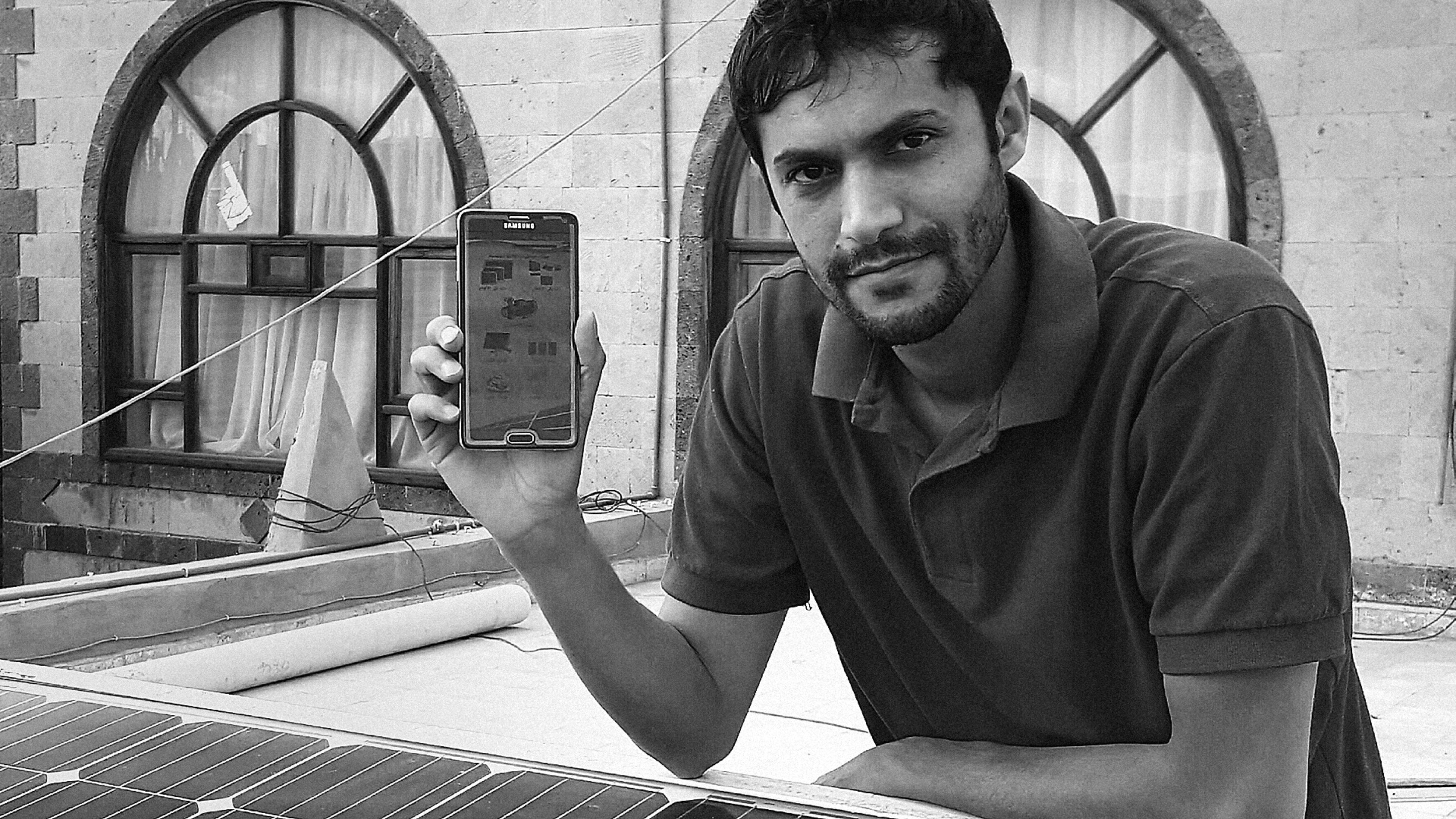When civil war began in Yemen in 2015, so did the growth of solar power. The crisis took out the already unreliable electric grid and made fuel for generators both scarce and expensive. Solar panels, though also expensive, became a better deal. As people started to turn to solar power, one Yemeni man decided to build an app to help people learn how to install them–which helped solar grow even faster.
“Due to the war and the crisis that is going on in Yemen, the power grid that was supplied by the government is totally disconnected, hence, solar power systems became the main power supply for most homes and businesses,” says Anwar Al-Haddad, who built the app, called PV Solar. Al-Haddad estimates that in 2016, solar grew from roughly 5% of the electricity supply in cities like the capital of Sanaa to more than 50%.
An Arabic version of the app also includes articles and advice about how to install, maintain, and use the panels. [Image: courtesy PV Solar]Al-Haddad, a trained engineer who had personal experience with solar power, kept getting questions from friends and family members about how to install and use a solar power system. “I tried to find a mobile application that they can refer to,” he says. “Unfortunately, I couldn’t find any app to do that. Moreover, I didn’t find any Arabic application for solar power systems.”
He didn’t know how to build an app (“I do not like coding, no matter how hard I try to learn it,” he says), but discovered Thunkable, a drag-and-drop platform that anyone can use to make an app without experience. The resulting app helps people calculate the size of the solar panel system they need. If someone places their phone on the panel, the app can use the phone’s gyroscope to calculate the tilt of the panel and help the user adjust it to get the maximum sunlight. An Arabic version of the app also includes articles and advice about how to install, maintain, and use the panels.
For Thunkable, a Y Combinator-alum, the story is an example of the power of creating opportunities for people to solve local problems. “In Silicon Valley, we try and solve many of the world’s problems with technology, but there are so many problems that we are not even aware of,” says Arun Saigal, the company’s cofounder and CEO. “With Thunkable, we are enabling people with the most intimate knowledge of their own major local problems to solve these problems.”
[Image: courtesy PV Solar]The app has been downloaded more than 60,000 times in Yemen and is in use in thousands of homes and businesses. For Yemen, the most immediate impact of new solar power is more reliable access to electricity; even before the war, blackouts were common. As the price of diesel and gasoline surged at the beginning of the war, solar was a more affordable option than using generators. But the adoption of solar has also had wider impacts: with fewer generators, the air is cleaner and cities are quieter at night.
“Under normal circumstances, it would have taken years, even decades, to convince the citizens of Sanaa that switching to solar was not just better for the environment, but saves money as well,” one Yemen citizen wrote in 2016. “But the ongoing conflict seems to have helped push the switch through in a matter of months.” The app, arguably, helped that happen even faster.
Recognize your brand’s excellence by applying to this year’s Brands That Matter Awards before the early-rate deadline, May 3.
